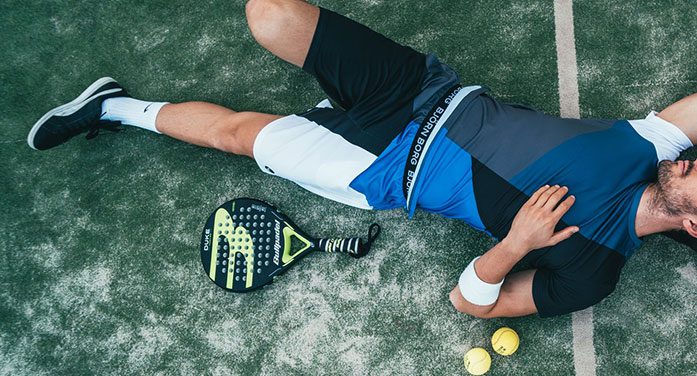 As an athlete, coach and sports fan, I’ve long been enamoured with the subject of confidence in sports, more specifically, how you get it and maintain it.
As an athlete, coach and sports fan, I’ve long been enamoured with the subject of confidence in sports, more specifically, how you get it and maintain it.
I’ve been equally enamoured with the phenomenon of choking in the sports arena.
Why do our minds sometimes sabotage our efforts to perform well by feeding us self-doubt and the fear of failure?
Choking and confidence both lie in the realm of sports psychology; they’re two sides of the same coin.
Choking is a universal phenomenon in athletics. Yes, at some point, even Michael Jordan and Tiger Woods choked. Their self-doubts and fear of failure overcame their positive memories of success, and their muscles tightened, which negatively impacted their performance. They failed in those moments.
The goal for all athletes, even the very best, is to choke less and play confidently more often. Figuring out how to do that consistently is the big challenge.
I think sports psychology is still very much in its embryonic stage. Compared to sports physiology and physical training in sports, sports psychology and mental training are miles behind.
Almost every sports psychologist touts positive thinking and visualization as key tools for building confidence. Sit quietly in a dark room, close your eyes and visualize yourself doing great things on the playing field, track or in the swimming pool. See yourself or your team winning and celebrating. Then walk out of the room filled with confidence!
I don’t buy it.
Sure, thinking positively about your upcoming performance is better than thinking negatively. But I don’t think your mind is fooled by trying to manufacture positive scenarios about your sports performance.
The reality is that our minds – more accurately, our ego-minds – are concerned with preventing us from looking like fools and embarrassing ourselves. The ego is screaming in our heads: “Don’t fail, or you’ll be seen as a loser and others will think less of you.”
The ego wants to protect our public image – or at least, what we think, or hope, is our public image. Visualizing make-believe scenarios in which you compete at a high level, don’t make any mistakes and win doesn’t do much to persuade the ego not to send messages of self-doubt. The ego understands reality. And those visualizations aren’t real.
I’ve come to believe that the key to confidence in sports (and maybe life as a whole) is being willing to fail, screw up and make mistakes. Basically, the magic tool for confidence is acceptance – accepting that we quite likely could mess up in our next competition and lose the game.
The willingness to fail is, ironically, the key to success. What evolves from the willingness to fail is the self-belief that you can handle failure and making mistakes during a competition. You still prefer not to mess up and lose a competition, but you accept – and realize – that if you do, you can handle it. Knowing that you can handle whatever happens during a game is where true confidence comes from.
Clues your ego may be a bit inflated by Faith Wood
And is holding you back from becoming the strong, resilient and likeable person you can be
How student athletes stay mentally healthy by Michael Brown
Study of female varsity athletes suggests they look after their mental health before, during and after the sports season
Most fear in sports comes from being unwilling to fail or make a mistake. The more you resist losing, failing or making an error, the tighter you become. The natural human tendency is to try to avoid being embarrassed.
However, if you say to yourself, “I prefer not to fail or make a mistake, but if I do, I do, I can handle it,” you’re going to play in a more relaxed and confident state and have the advantage over the athlete who’s telling him or herself, “I can’t screwup. We have to win this game. If I mess up, or we lose, that would be terrible.” That athlete will be as tight as a drum during the competition.
The next time you enter a sporting event, no matter the level, certainly give your best effort, but be willing to fail, make mistakes and lose. And also know that you can handle whatever the outcome is. And if you do fail, focus on learning and growing from it.
I think that’s a better approach than visualizing amazing performances in which you never make mistakes and never lose. That’s not reality.
The most confident athletes accept the reality of sports, including making mistakes and losing.
And they know they can handle it.
Ken Reed is sports policy director for League of Fans (leagueoffans.org), a sports reform project. He is the author of The Sports Reformers, Ego vs. Soul in Sports, and How We Can Save Sports. For interview requests, click here.
The opinions expressed by our columnists and contributors are theirs alone and do not inherently or expressly reflect the views of our publication.
© Troy Media
Troy Media is an editorial content provider to media outlets and its own hosted community news outlets across Canada.

